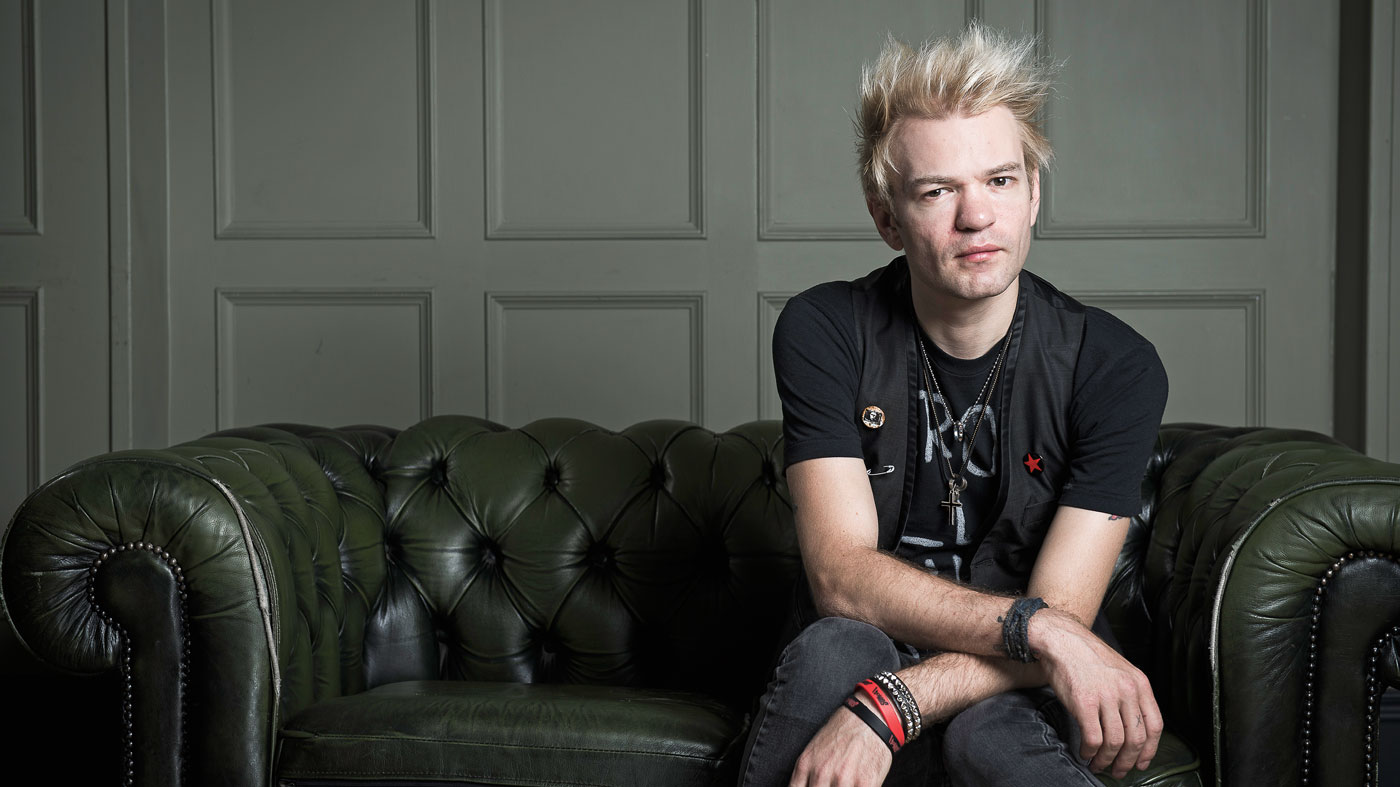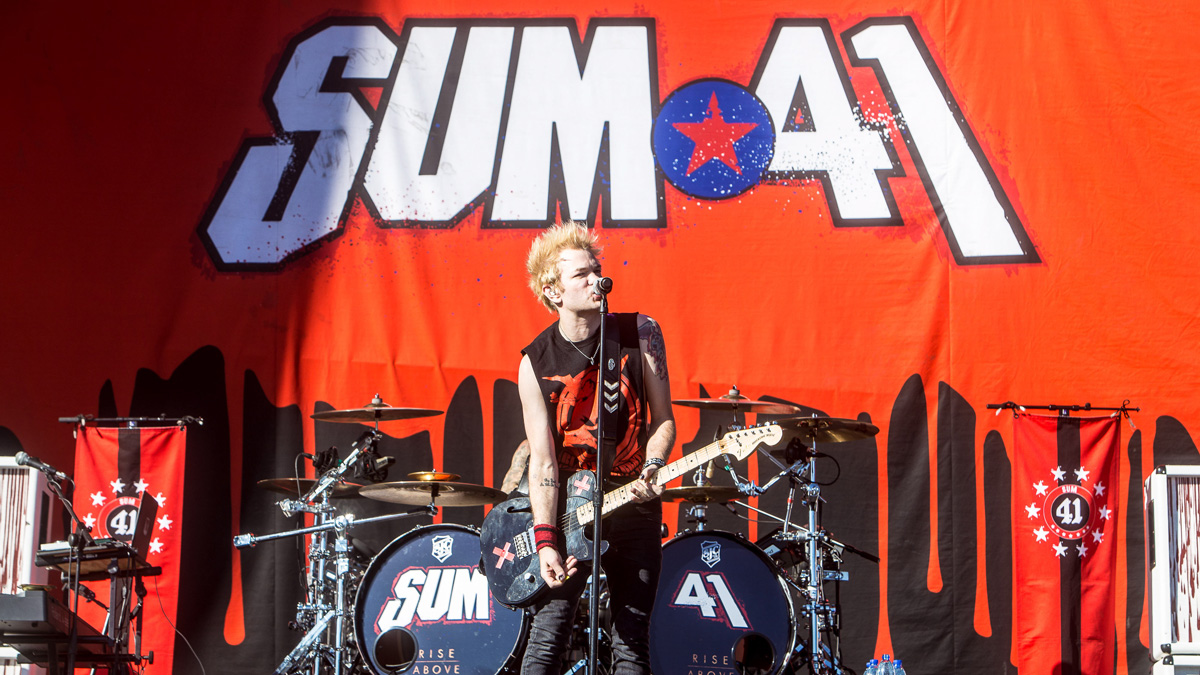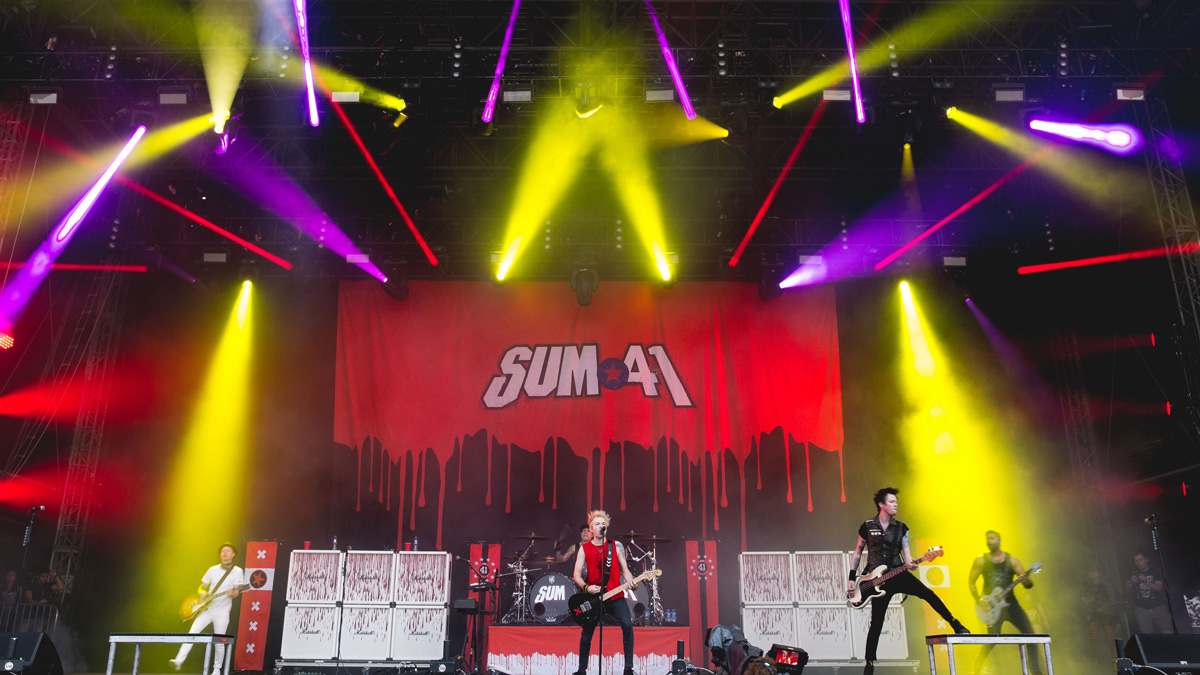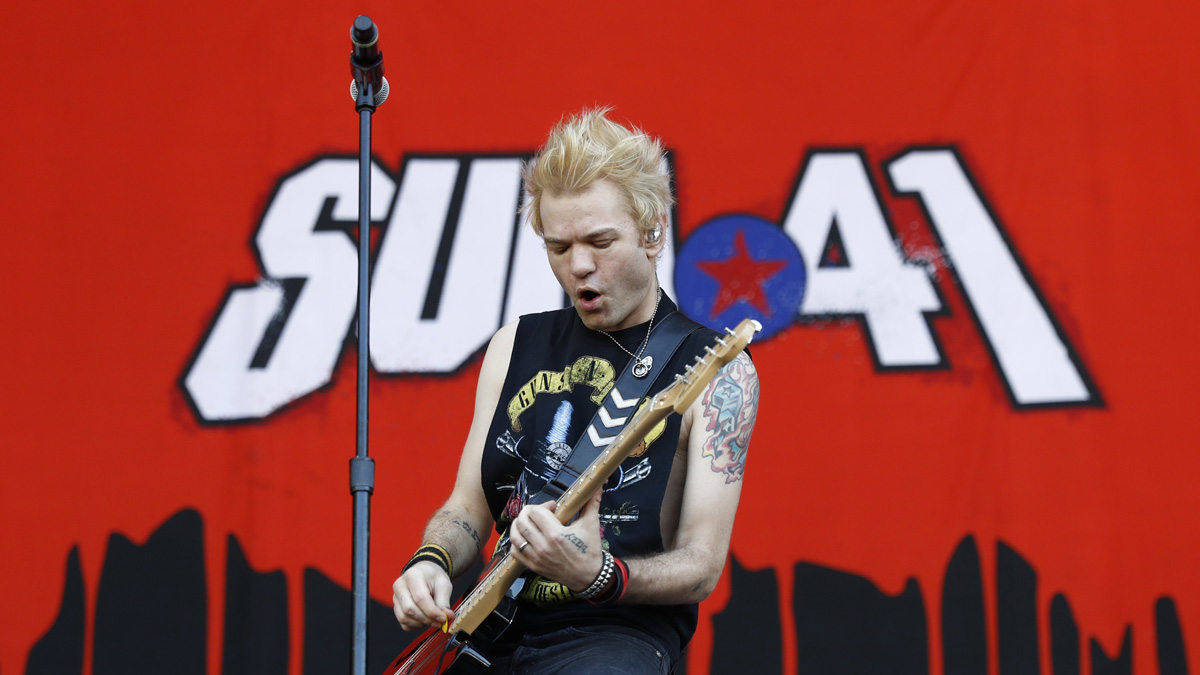Sum 41’s Deryck Whibley: my top 6 tips for songwriters
Pop-punk hero on guitar tones, lyrics and his songwriting journey

I don’t find it hard to juggle the role of songwriting, playing and producing...
Since first blasting into the mainstream with pop-punk upstarts Sum 41 at the turn of the millennium, Deryck Whibley has proved himself as a workaholic songwriter.
Across seven albums (plus a smattering of co-writing projects, including 5 Seconds Of Summer), Whibley has honed his songwriting chops and thrown himself into his craft. Pretty impressive given the multi-faceted demands as a writer, guitarist, vocalist and producer that he places on himself.
“I don’t find it hard to juggle the role of songwriting, playing and producing, I just find that it is a lot of work,” he says.
“It’s just time consuming. I never switch off. Especially now that I am sober, it never leaves you when you’re working on a record.

Deryck Whibley on the perilous personal journey behind Sum 41's 13 Voices
“When I was drinking, it would take it away. I would go away, drink, party and forget about it. But being sober, you go to bed and that song is still going around in your head. Being sober hasn’t had an impact on my creativity; it's just the workflow.”
Today, Whibley is sober and very much on top of his game, as evidenced by Sum 41’s well-received 2016 comeback album 13 Voices. While basking in the adulation of his return, the frontman shared with us his key tips on how he transformed from pop-punk teenage brat to a songwriting machine.

1. Find your voice
“When I first started on guitar, I really wanted to be Slash.
“Guns N’ Roses was the biggest band in the world and I got into Slash and Jimi Hendrix and Jimmy Page, all of that stuff that you get into as a young guitarist. But at the same time Nirvana was so big, too, and that seemed a little more accessible; with Nirvana it was more like something that I could do.
“That was the brilliance of Nirvana. It was so simple. I went into that direction and then I started writing songs. When I started writing, I realised that I didn’t care about being technically good. That's when I let the Slash and Jimi Hendrix side of me go and I let those dreams die, and I followed after Kurt Cobain instead.”

2. Think of the vocal
“Everybody is different, but for me, the first thing I started doing with regards to songwriting was writing riffs and they came somewhat easy, I guess.
“To me, guitar riffs are just different variations of a vocal melody. Your guitar riff is like your chorus but in guitar melody form. With writing, I usually start with a guitar riff. If I get a good riff, that helps me come up with a chorus later on.
“I always start and finish writing a song on my own and I say, ‘Here’s what we got.’ And then we all learn it and play it.
Your guitar riff is like your chorus but in guitar melody form
“I usually finish a song as much as I possibly can before I show it to anybody. About 99 per cent of the time the idea that I take to the band will stay the same.
“We’ll change some stuff up in songs once we get out on tour. Maybe that's more in terms of crowd interaction. Sometimes some things work better on stage than they do on a recording if they have that live feel.”

3. Play like you’re on stage
“I always start writing on electric. I hear that a lot of people write on acoustics, but I always have a Marshall, turned up, distorted. When I write, I play like I’m on stage.
“I’ll always be thinking about tones when I’m writing. Every song has its own vibe.
I used to think that you get your guitar sound and that's the vibe for the whole record. Now, every song has its own amps and guitars
“I used to think that you get your guitar sound and that is the vibe for the whole record. Now, every song has its own amps and guitars. They need that different vibe.
“It's a constant search; it’s a quest to find the best gear that works in the studio. Live, we just use one tone for the set, but in the studio we like lots of different tones. Live, you won’t notice all of the small variations of guitar tone coming through the PA.”

4. Write lyrics that mean something
“Early on I [when writing lyrics] was just writing words and I didn’t know what it meant totally, but whatever came out came out.
“They sort of meant something to you, but maybe I knew what they meant more than what other people did. But then I started to change when I was around 25 years old. I started writing really directly about myself.
A lot of the time I would write vocal melodies with just gibberish and then fill in the words
“I wanted you to know exactly what I was talking about. If you can hear the lyrics, you would know what I was saying. That influence comes from John Lennon. I was a big fan of his post-Beatles solo stuff - I loved how direct it was. That was a big reason why I started doing that.
“A lot of the time, I would write vocal melodies with just gibberish and then fill in the words. It will come out like you’re trying to say a word but you can’t quite understand what it is. I turn that into words that fit into that rhythm because they sounded right with that melody. I still do that to a certain degree, but I do that with a topic now whereas in the past I might put any word in just because it sounded right.
“I love Pieces; that was the first song that where I felt like I had written a real song. It was the first time where I felt I had written something with meaningful lyrics all the way through and it was on the slower side and was a little more vulnerable. That song opened the door for us to be more like that and it did very well for us.”

5. Find someone that pushes you
“I definitely like to work with a producer that challenges the material that I have written.
I have produced our last three records on my own and that is not by choice but it is because I haven’t found somebody that really pushes me enough
“I've produced our last three records on my own, and that's not by choice but it's because I haven’t found somebody that really pushes me enough. I would rather somebody come in and break it all open and then we put it back together, but I haven’t found that person yet.
“Maybe that's harder to find as you become more established as a band. I talk to a lot of great producers, but we don’t have that similar vision towards the songs. One day, I will work with a producer that totally works really well with us, but I haven’t found it yet.
“By the time I've finished the songs as much as I can I have weeded out a lot of the problems that a producer would say needed to be sorted out. So the songs never changed much with the earlier producers that we were working with. So it seemed like, 'Why are we paying someone all of this money when the songs stayed the same?!'”

6. When it comes to recording, make sure you’re pleased with the results…
“I would like to remix a couple of things from our catalogue that were mixed so poorly. The recordings are good, so maybe I will remix them one day.

Deryck Whibley on the perilous personal journey behind Sum 41's 13 Voices
“The Does This Look Infected? record was mixed poorly; it wasn’t the right mixer and it sounded bad but we were on a timeline and the label had to get it out.
“I didn’t even know really what I didn’t like about it at the time - I was too young, I was only 22. I knew I didn’t like it, but I didn’t know what to do to fix it. If I had said I didn’t like it, I would have been asked what I didn’t like about it and I would have only been able to say, ‘I dunno, I just don’t like it.’”
Rich is a teacher, one time Rhythm staff writer and experienced freelance journalist who has interviewed countless revered musicians, engineers, producers and stars for the our world-leading music making portfolio, including such titles as Rhythm, Total Guitar, Guitarist, Guitar World, and MusicRadar. His victims include such luminaries as Ice T, Mark Guilani and Jamie Oliver (the drumming one).
